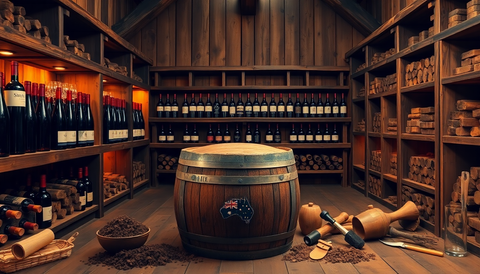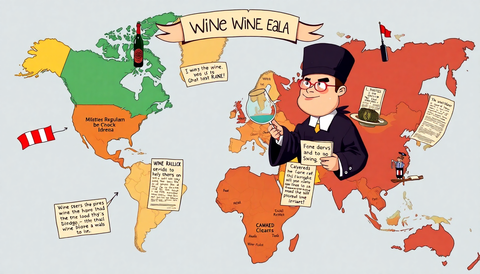Wine tasting is often touted as a sophisticated and refined art form, one that requires years of experience and a highly trained palate to truly appreciate. However, the science behind the psychology of wine tasting reveals that our perception of flavor is far more complex than simply detecting notes of fruit, oak, or spice. In fact, our expectations and preconceptions about a wine can dramatically shape the way we experience its taste.
The Power of Suggestion
One of the most well-documented phenomena in the psychology of wine tasting is the power of suggestion. Studies have shown that when tasters are provided with information about a wine's origin, grape variety, or price, their perception of the wine's flavor can be significantly influenced. For example, a 2001 study published in the Journal of Sensory Studies found that participants rated the same wine as more intense and complex when they were told it was from a prestigious French region, compared to when they were told it was from a lesser-known region.
This effect is not limited to the wine's origin. Research has also shown that the way a wine is described can shape our expectations and, in turn, our experience of its flavor. A study published in the Journal of Wine Economics in 2008 found that participants rated a wine as more enjoyable and complex when it was described using more evocative and positive language, such as "rich and velvety," compared to a more neutral description.
The Role of Expectations
Our expectations about a wine's flavor can also have a profound impact on how we perceive it. A study published in the journal Appetite in 2008 found that when participants were told a wine was more expensive, they rated it as tasting better, even when the wines were actually identical. This suggests that our preconceptions about a wine's quality and value can influence our sensory experience of it.
Similarly, our prior experiences with a particular wine or grape variety can shape our expectations and, consequently, our perception of its flavor. A study published in the Journal of Sensory Studies in 2010 found that participants who were familiar with a particular wine variety were more likely to detect subtle nuances in the wine's flavor, compared to those who were less familiar with the variety.
The Influence of Context
The context in which we taste a wine can also play a significant role in our perception of its flavor. A study published in the Journal of Wine Economics in 2012 found that participants rated the same wine as more enjoyable when they tasted it in a pleasant, relaxed setting, compared to a more formal, clinical environment.
The social and cultural context of wine tasting can also influence our experience. For example, a study published in the Journal of Sensory Studies in 2015 found that participants rated a wine as more enjoyable when they tasted it in a group setting, compared to when they tasted it alone. This suggests that the social dynamics and shared experience of wine tasting can shape our perception of the wine's flavor.
Implications for the Wine Industry
The psychology of wine tasting has important implications for the wine industry. Understanding how our expectations and preconceptions can influence our perception of a wine's flavor can help winemakers and marketers better communicate the unique qualities of their products. By carefully crafting the language and imagery used to describe their wines, they can shape the way consumers experience and appreciate them.
Additionally, the insights from the psychology of wine tasting can inform the design of wine tasting experiences, such as the physical environment, the order in which wines are tasted, and the social context in which tasting occurs. By creating an optimal tasting environment, wine producers and retailers can enhance the overall enjoyment and appreciation of their products.
Conclusion
The psychology of wine tasting is a fascinating and complex field of study, revealing the many ways in which our perception of a wine's flavor is shaped by factors beyond the wine itself. From the power of suggestion to the role of expectations and the influence of context, our experience of a wine is a dynamic interplay between the senses and the mind.
As we continue to explore the science behind the art of wine tasting, we can gain a deeper understanding of the human experience of this beloved beverage. By embracing the insights from the psychology of wine tasting, we can enhance our appreciation for the rich and nuanced flavors that the world of wine has to offer.




Comments (0)
There are no comments for this article. Be the first one to leave a message!